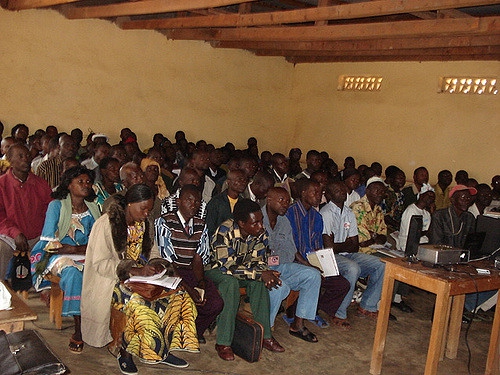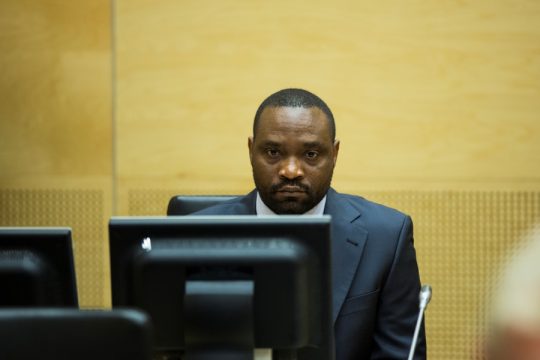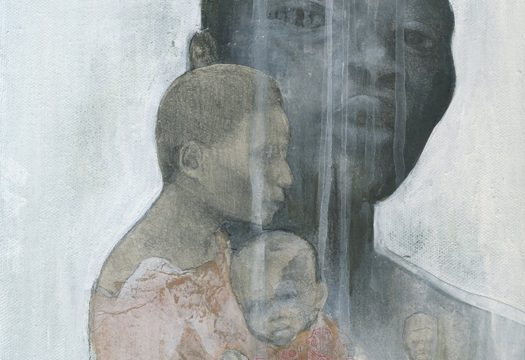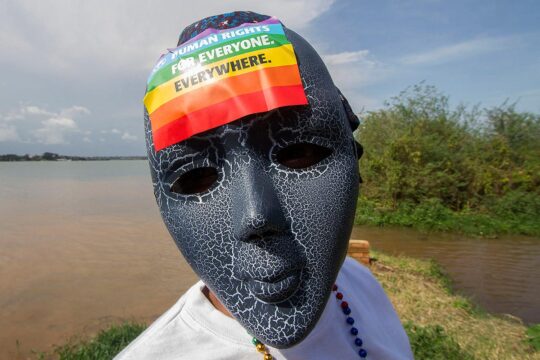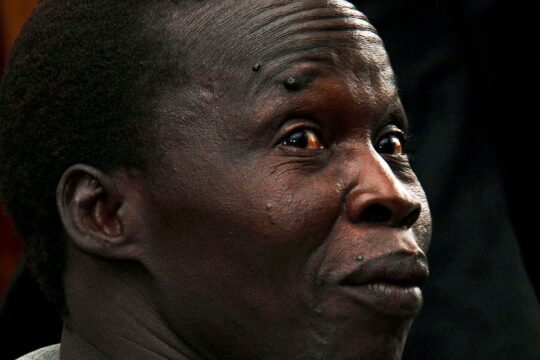The International Criminal Court (ICC), which has been working for over a decade, was hailed on its creation as having innovative provisions for victims. Its Statutes provide for victim participation and representation in trials, and for judges to order that ICC convicts pay reparations to victims. There is also a donor-funded Trust Fund for Victims managed independently of the Court that has helped fund development projects for communities affected by situations before the Court, notably in the Democratic Republic of Congo (DRC) and Northern Uganda.
The ICC’s first judgment was against Congolese militia leader Thomas Lubanga, who was convicted in 2012 for recruiting and using child soldiers and sentenced to 14 years in jail. Reparations form part of the judgment.
So is the ICC providing justice for victims?
The director of a Congolese NGO told JusticeInfo.net in a recent interview that “the victims expected something concrete from the ICC and nothing was done”. We asked Luke Moffett, School of Law Lecturer at Queen’s University Belfast and author of the book “Justice for Victims before the ICC” (recently published in paperback), if this is a fair assessment.
Luke Moffett: Yes, I think it’s a fair assessment, but I think there is a caveat that there are a lot of expectations around the ICC. And some of that is created by the Prosecutor saying we’re going to deliver justice for the victims and there are going to be reparations, when in fact it is only going to be for a few victims, and even then it’s going to be more like assistance or development rather than compensation or restitution of property, which is what you mostly associate with reparations, no matter what the culture. So I think the ICC needs to be more careful about how it manages expectations and how it presents itself to the victims.
JusticeInfo.net: Has the ICC ever awarded any reparations, as such?
LM: Well, they awarded them in the Lubanga case. He was charged for using child soldiers. The difficulty there is that the Trust Fund was put in charge of delivering a programme for reparations, and that is being examined by the Court at the moment. So hopefully this year there’ll be the first actual delivery of reparations to victims in the Lubanga case. But it’s a very slow process and in the end it’s going to be about rehabilitation, not about tangible compensation.
JusticeInfo.net: Also Lubanga was declared indigent, since apparently he has no money. So isn’t it the donors who end up paying?
LM: Yes, exactly. And that undermines what reparations are. Reparations are supposed to be paid by the responsible party. But you’ve got to understand that it wasn’t just one individual who committed all these crimes. Uganda and Rwanda provided money, training and weapons to him and they are not held to account. So maybe if the donors are footing the bill, it’s also some of the states that helped commit these crimes.
JusticeInfo.net: A lot of the research for your book was in Northern Uganda. Can you tell us how people there feel about what the ICC has done for them, if anything?
LM: There are a lot of mixed views. There’s a lot of frustration among those victims’ groups who engaged with the ICC back in 2006 when the arrest warrants were issued against the Lord’s Resistance Army, and then the Court sort of withdrew when there were no arrests. There’s also a bit of anger with the ICC that it kind of messed up the peace process with the LRA. There was an amnesty law on the statute books of Uganda and leaders trying to encourage LRA commanders like Ongwen to surrender, but the ICC complicated that by issuing arrest warrants for them.
Victims have suffered from atrocities committed by the LRA but also the Ugandan government. When you talk to people about how they suffered in the past, it doesn’t start with the LRA, it starts with the Ugandan armed forces and how they tortured, disappeared and committed sexual violence against thousands of people, and yet they are not being brought to the ICC.
I think at the moment there’s a lot of interest in Dominic Ongwen being prosecuted. I hope the ICC can really legitimize itself as doing justice for victims, and there are more than 2,000 participating in court. But the wider issue is that really the ICC isn’t going to solve the consequences of the Ugandan conflict. The Ugandan government has to do that.
JusticeInfo.net: Among the recommendations in your book, you say the ICC should call upon States to complement the ICC’s reparation orders. But do you think that is realistic, given that it’s a big financial commitment and most African States already don’t like the ICC?
LM: Yes, but countries like Côte d’Ivoire and Sierra Leone have already implemented reparations programmes, despite not having much money. The Ugandan government spends a large percentage of its GDP on defence, so I think there needs to be a shift in the way money is spent in Uganda. It’s also about engaging donors as well, and what they can contribute to reparations under transitional justice policy. If you take the example of Colombia, it’s one of the largest reparations programmes in the world. It’s got 7.6 million victims on its books and it’s taken a loan from the World Bank of I think about 24 billion dollars. So there’s ways and means for States if they really want to remedy the past and make sure it doesn’t happen again.




